The future is now
Why a multisite conference is coming at exactly the right time
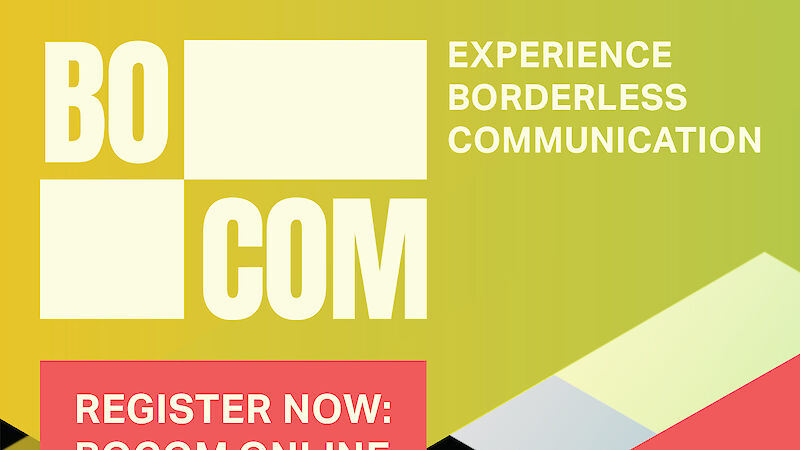 © GCB
© GCB
As long as humankind exists, we have been coming together to connect, learn from each other and jointly develop new ideas. Yet, how meetings and conferences take place has fundamentally changed, and not only since we entered a new decade.
Megatrends such as digitalisation, sustainability and globalisation shape the world of events and it is high time to put these abstract terms with their inherent opportunities and potential to a practical test. Therefore, BOCOM, the multisite conference taking place on 23 April 2020, is for more than one reason a future-facing format coming at just the right time to kick off the new decade.
In the midst of the digital transformation
The digital transformation is not something that will happen “at some point”. We are already in the midst of it. The way we work and how we communicate, collaborate and meet has changed hugely in recent years. Only a couple of decades ago, working with colleagues who were on another continent meant high telephone bills, post arriving days or weeks late and hardly any interaction. Now, we can connect with one click, see whom we are talking to and jointly work on digital documents – and an end to this transformation is not in sight as change is the new normal. Many clever people develop literally tons of new technologies, tools and ideas that take the way we communicate and collaborate to new levels. BOCOM will bring a wide range of these new technologies together in a test lab, enabling people from very different sectors to experiment, ask questions, engage in discussions with others and be inspired. Be it augmented and virtual reality, remote simultaneous interpreting or conversational interfaces, BOCOM serves as a prototype for people to jointly experience and discuss the potential of a decentralised conference.
Sustainability is here to stay
Alongside the digital transformation, sustainability is another megatrend. Sustainable behaviour from an ecological, social and business perspective not only concerns each and every one of us in our everyday life but also the future of the meetings industry in general. In this context, sustainability is not limited to using reusable cups or environmentally friendly means of transport. BOCOM therefore looks beyond and covers every aspect, including energy requirements, CO2 emissions, resource requirements with regards to water, paper, mobility solutions or staff, waste management, catering, attendee satisfaction, the social impact on participants, effects on knowledge transfer and co-creation as well as the economic aspects of such an event. BOCOM is framed by academic research to analyse all these aspects to varying degrees and compare them to conventional, analogue event formats, with the aim of developing concrete recommendations how to optimise the sustainability performance of events.
Overcoming boundaries of culture and language
Events have always been spaces of international understanding, widening horizons and fostering social interaction. They can be diverse places where ethnic origin, age, gender, disabilities, ideologies or sexual identity don’t matter. However, to achieve that, people need to be enabled to really meet, something that requires a human touch. At the same time, companies, associations and other organisations face the challenge to act efficiently and in ways that save resources and to rethink how employees communicate and collaborate. In addition, the much-discussed goal of democratising knowledge requires for events to be accessible, thereby enabling more people to participate apart from the ones that can be physically there. Addressing these highly relevant topics, BOCOM will bring people together in a variety of locations around the world and at the same time enable tech-supported interaction with conference attendees in other places. Digital tools for interpreters will minimise language barriers. BOCOM will bring people together that might never meet otherwise – simply because language barriers, geographical distance or missing resources would prevent it.
BOCOM at a glance
Taking place on 23 April 2020, “BOCOM – Experience Borderless Communication” connects a central conference hub in Berlin with decentralised locations around the world. Participants can also take part via a live stream. The event’s agenda revolves around new ways of mobile and collaborative working, human-machine interaction and sustainability. The multisite conference is meant to be a prototype and test lab where participants can experience and engage with technologies such as augmented and virtual reality, remote simultaneous interpreting or conversational interfaces to jointly assess the opportunities and potential of conferences set up in a decentralised fashion.
BOCOM grew out of the “Future Meeting Space” (FMS) innovation network, which was founded in 2015 by the GCB German Convention Bureau and the Fraunhofer Institute for Industrial Engineering IAO with the aim of defining technical, organisational and spatial conditions for successful events of the future. The multisite conference format taking place at different locations was one of the first future meetings scenarios identified by the FMS research initiative. With BOCOM, the GCB and Fraunhofer IAO, together with their partners c4 Berlin (formerly TRIAD) and visitBerlin Berlin Convention Office, have now initiated the first test lab for borderless communication in the digital age. Besides the initiators, the following partners are involved in BOCOM: Accor, AllSeated, Design Offices, gamelab.berlin, KFP Five Star Conference Service, meetyoo conferencing, Neumann & Müller Veranstaltungstechnik, nomtek, Tourismus NRW, Ungerboeck and VR Business Club. The sustainability research on BOCOM is supported by the German Federal Environmental Foundation.
More information on www.bocom.online
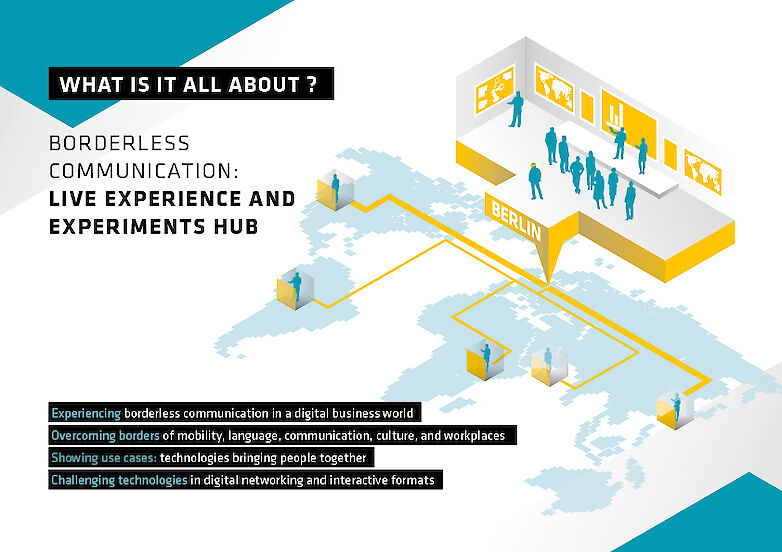
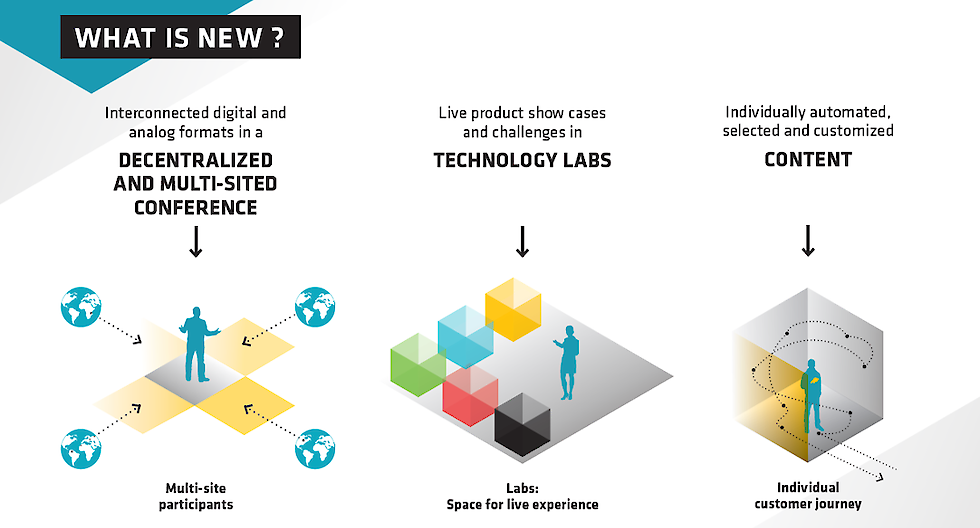
 ©
©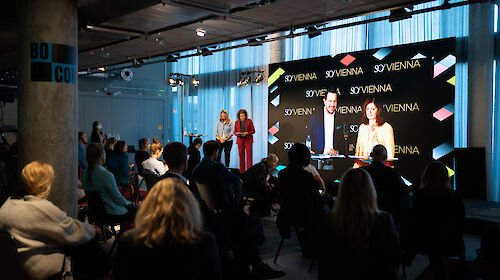 ©
©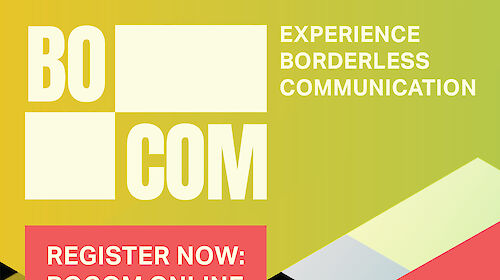 ©
©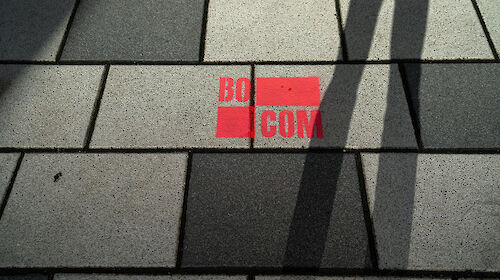 ©
©